Kishan Rana is a widely published former Indian ambassador and Bipul Chatterjee, his co-editor, is the deputy executive director of the Indian NGO, and CUTS International is the the publisher of this book. Both editors are also trained economists. Their volume consists of 25 chapters, all except three written by serving or former members of the Indian Foreign Service. The chapters are divided into five parts, the titles of three of which clearly indicate the broad meaning given by the editors to the term economic diplomacy: ‘Export promotion’; ‘Investment and economic aid’; and ‘Managing networks and the regulatory environment’ (the other two are ‘Context and objectives’ and ‘Today’s challenges’). They are prefixed by a lengthy introduction on ‘The role of embassies’.
It is no surprise to learn that the impetus to the development of India’s economic diplomacy was provided by the huge surge in the price of crude oil in 1973. Where they did not already exist, embassies were soon opened in the oil-producing states of the Middle East and North Africa and diplomats gave priority to expediting both material and labour exports, and interesting these states in investing in projects in India. In the last regard the chapter by Talmiz Ahmad on the role of the Indian embassy in Abu Dhabi in promoting UAE investment in India is particularly instructive.
As far as I am aware this is a unique book: there is no other which has drawn on such a broad range of diplomatic experience to develop this particular theme. It is also a valuable book because the theme is so important. Governments tend to live or die by the amount of exports their economies can generate and the foreign investment they can attract; and the division of labour in these matters between the diplomats and the businessmen (and their trade associations) and how the diplomats should handle their own brief are questions which have been around for a long time. But what work has been done on them has been largely confined to officially sponsored reports in the West. To have such a study as this on the economic diplomacy of one of the most important non-Western states is a major advance for diplomatic studies. The first edition was marred by an index that was riddled with vagaries and spectacular errors but a new edition is already in progress and will have the added advantage of a short contextual introduction to each essay. This will be the one to get hold of.
Book review by Geoff Berridge
You may also be interested in
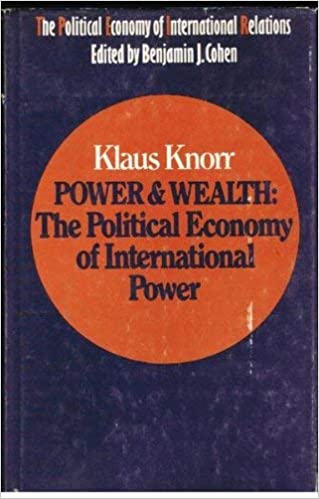
Power and Wealth: The Political Economy of International Power
The text discusses the relationship between power and wealth in the political economy of international power.
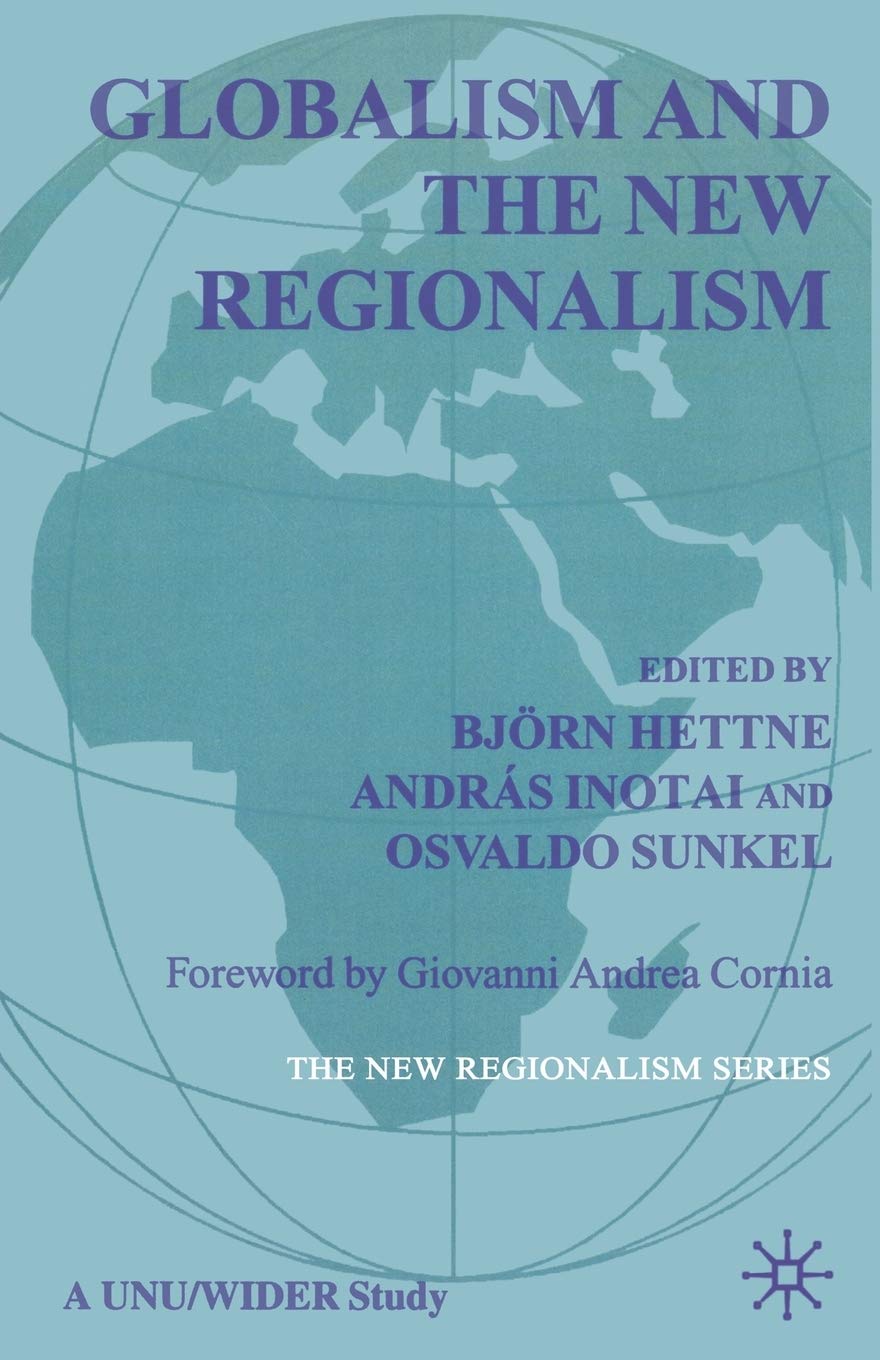
Globalism and the New Regionalism
The text discusses the impact of globalism on the new regionalism trend, emphasizing how regions are increasingly important economically, politically, and culturally in the global landscape. The author explores how global interconnectedness has led to a rise in regional cooperation and integration as a response to globalization, highlighting the various ways in which regions are shaping international relations and global governance.
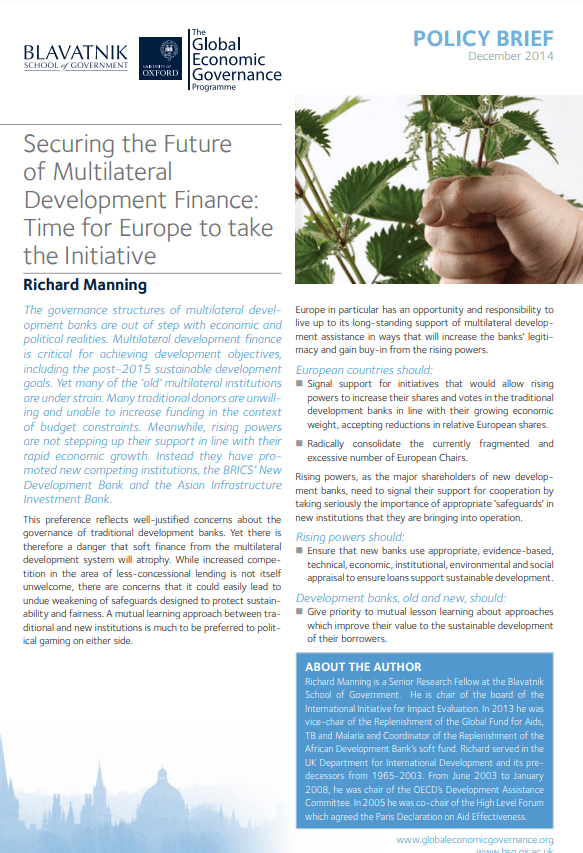
Securing the Future of Multilateral Development Finance: Time for Europe to take the Initiative
The message emphasizes the importance of Europe taking the lead in securing the future of multilateral development finance.
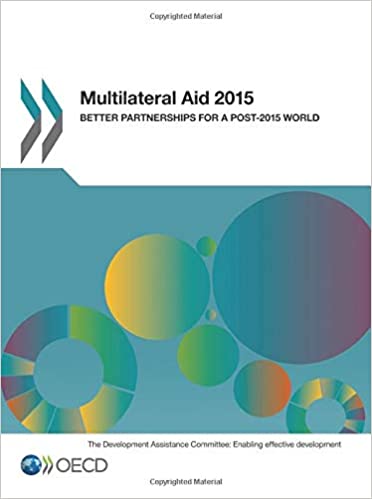
Multilateral Aid 2015: Better Partnerships for a Post-2015 World
The message emphasizes the importance of improving partnerships in multilateral aid for a post-2015 world.
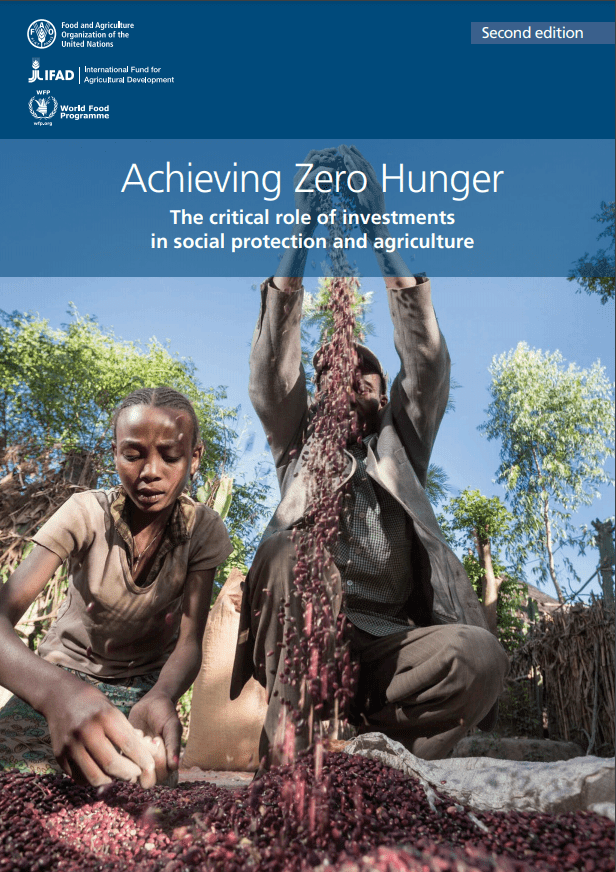
Achieving Zero Hunger: The Critical Role of Investments in Social Protection and Agriculture
The message emphasizes the crucial role of investments in social protection and agriculture in achieving zero hunger.

Small Developing Economies in the World Trade Organization
The text discusses the challenges faced by small developing economies within the World Trade Organization. These countries struggle due to limited resources, capacity constraints, and difficulties in implementing trade agreements. Despite efforts to enhance their participation and voice, these nations continue to face obstacles in fully benefiting from the global trading system.
Regional and Multilateral Trade Agreements: Complementary Means to Open Markets
The article discusses the benefits of both regional and multilateral trade agreements in opening markets effectively.
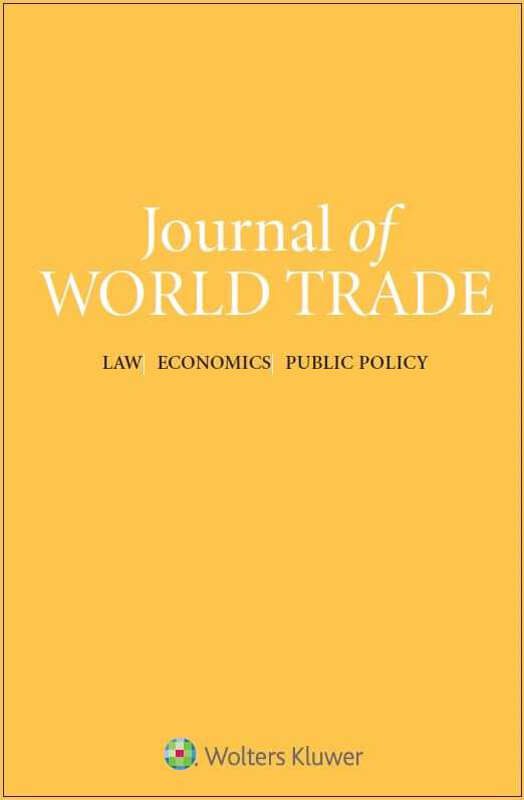
Rethinking trade in education services: A wake-up call for trade negotiators
Education plays a crucial role in fostering personal and social development, as well as economic growth. Government policies play a dominant role in this sector. Over time, trade in education services, particularly at the tertiary level, have been growing in importance. Driving factors include a combination of demographic changes, technological developments, national development goals, and governmental reforms to the funding and provision of higher education. The educational market has grown in size with more exporters entering the field to satisfy growing demand worldwide. The education ...

Valletta Statement on Multilateral Trade
The Valletta Statement on Multilateral Trade emphasizes the importance of a rules-based multilateral trading system in fostering sustainable development and economic growth. It calls for the preservation of the World Trade Organization (WTO) as the cornerstone of global trade governance. The statement stresses the need for WTO reform to address current challenges, defend against protectionism, and ensure that the organization remains responsive to the evolving needs of its members. It highlights the significance of multilateral cooperation in promoting a level playing field for all countries a...

Graduating from least developed country to middle income country status: A trap for small island developing states?
SIDS tends to perform particularly well with regards to their socio-economic achievements and development endeavours. As a result, several SIDS graduate from their Least Development Country status to Middle-Income Country status. This graduation implies that SIDS are much better-off economically and can do without the special treatments and benefits in terms of Overseas Development Assistance that they were receiving as an LDC. However, and this is the thrust of the argument in this paper, this is not the case at all. The support was and is crucial to SIDS. After all, it was the catalyst which...

Enyclopedia of International Development
The Encyclopedia of International Development is a comprehensive resource that covers a wide range of topics related to development, including theories, practices, actors, and key issues. It offers insights from various disciplines and perspectives, making it an invaluable tool for researchers, policymakers, and practitioners in the field of international development.

Conditionality in development aid policy
The text discusses the importance of conditionality in development aid policy.

Economic and Commercial Diplomacy in Micro States: A Case Study of the Maldives and Mauritius
The Maldives and Mauritius serve as examples of micro states engaging in economic and commercial diplomacy to promote their interests on the global stage. These nations leverage their unique characteristics and resources to attract foreign investments, expand trade opportunities, and foster economic growth. By strategically engaging with international partners, both countries have been able to navigate challenges and capitalize on opportunities to enhance their economic development and overall well-being.
Towards a Single Development Vision and the role of the Single Economy
The text discusses the importance of aligning development goals and the significance of the Single Economy in creating a unified development vision.
Caribbean Development Report, Volume I
The Caribbean Development Report, Volume I, analyzes key challenges faced by the Caribbean region, focusing on the implications of climate change, the impact of natural disasters, and economic vulnerability. It also emphasizes the importance of building resilience, promoting sustainable development, and fostering innovation and technology to address these challenges effectively. The report highlights the need for coordinated efforts from governments, private sector, and civil society to create a more resilient and prosperous future for the Caribbean region.
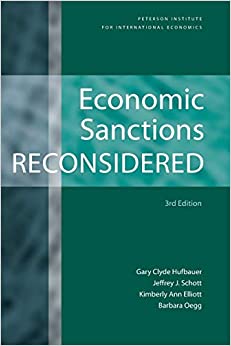
Economic Sanctions Reconsidered
The speech will discuss the effectiveness of economic sanctions.
The Role of NRNs in Nepal’s Economic Diplomacy
The text discusses the significance of Non-Resident Nepalis (NRNs) in Nepal's economic diplomacy efforts, highlighting their role in promoting trade, investment, and cultural exchanges between Nepal and other countries. NRNs serve as crucial bridges connecting Nepal to the global market and facilitating economic growth and development through their expertise, resources, and networks. Their contributions play a vital role in expanding Nepal's international presence and fostering mutually beneficial relationships with foreign nations.

Outcome document of the Third International Conference on Financing for Development: Addis Ababa Action Agenda
The Addis Ababa Action Agenda outlines commitments made at the Third International Conference on Financing for Development to address global financial challenges and promote sustainable development.

Report of the Review Committee on Overseas Representation
The Review Committee on Overseas Representation's report focuses on enhancing global presence and efficiency, recommending streamlining of processes, increased coordination between offices, and leveraging technology for better communication.

Influence of Economic Relations on Bilateral Relations
The title of the master thesis is "Influence of economic relations on bilateral relations". Firstly, three thesis statements concerning the influence of economic relations on non-economic bilateral relations have been developed. In order to validate the thesis statements a methodology was chosen that is mainly data driven and based on two case studies and a data comparison procedure, as opposed to a "theoretical approach".
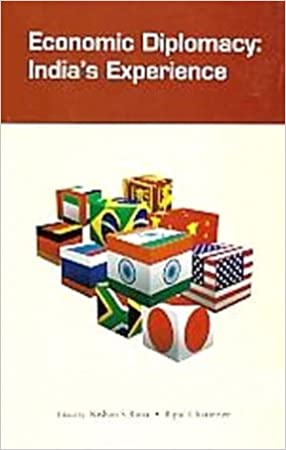
Economic Diplomacy: India’s Experience
The book "Economic Diplomacy: India's Experience" edited by Kishan Rana and Bipul Chatterjee, both experienced diplomats and economists, explores various aspects of India's economic diplomacy. It delves into topics like export promotion, investment, and managing networks. The development of India's economic diplomacy was largely influenced by the 1973 oil crisis. The editors draw on a wide range of diplomatic experiences, making this book a unique and valuable contribution to diplomatic studies. A new edition is in progress to address previous issues with the index and provide additional conte...

Back Channel to Cuba: The Hidden History of Negotiations Between Washington and Havana
The book "Back Channel to Cuba" discusses the negotiations between Washington and Havana, leading up to the historic announcement of the normalization of relations in December 2014. The authors highlight the failed methods employed by the U.S. in dealing with Cuba and emphasize the importance of common interests in facilitating diplomatic discussions. The book provides a detailed account of the various forms of "back-channel" diplomacy utilized, showcasing the intricate negotiations between the two countries. Despite some criticisms of the structure of the book, the work is considered richly d...
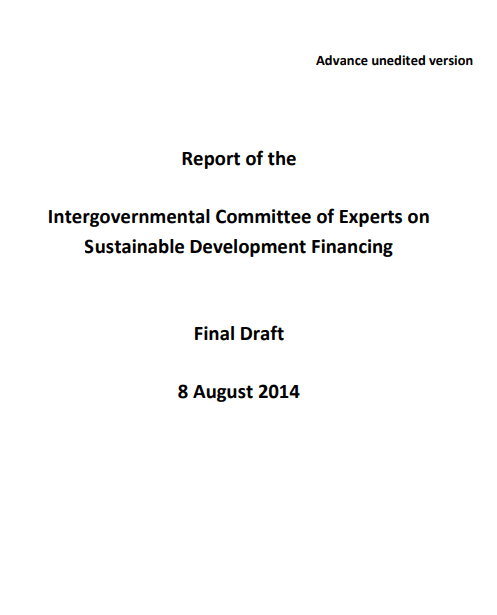
Report of the Intergovernmental Committee of Experts on Sustainable Development Financing
Report of the Intergovernmental Committee of Experts on Sustainable Development Financing.

Commercial diplomacy in advanced industrial states: Canada, the UK, and the US
The text discusses the concept of commercial diplomacy in advanced industrial states such as Canada, the UK, and the US. It explores how these countries engage in economic diplomacy to promote their commercial interests internationally.
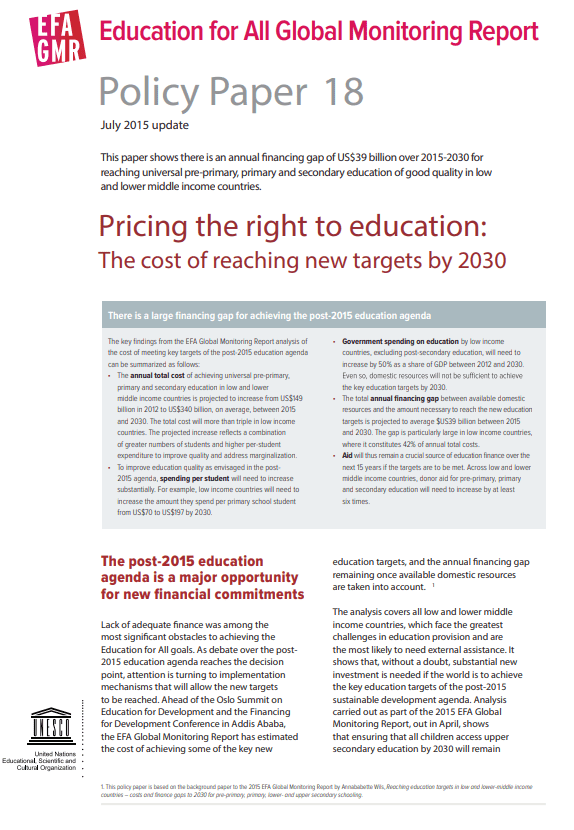
Pricing the right to education: The cost of reaching new targets by 2030
This paper shows there is an annual nancing gap of US$39 billion over 2015-2030 for reaching universal pre-primary, primary and secondary education of good quality in low and lower middle income countries.

Economic Geography and International Inequality
The text explores the complicated relationship between economic geography and international inequality, elucidating how spatial factors contribute to disparities in wealth and development across nations.
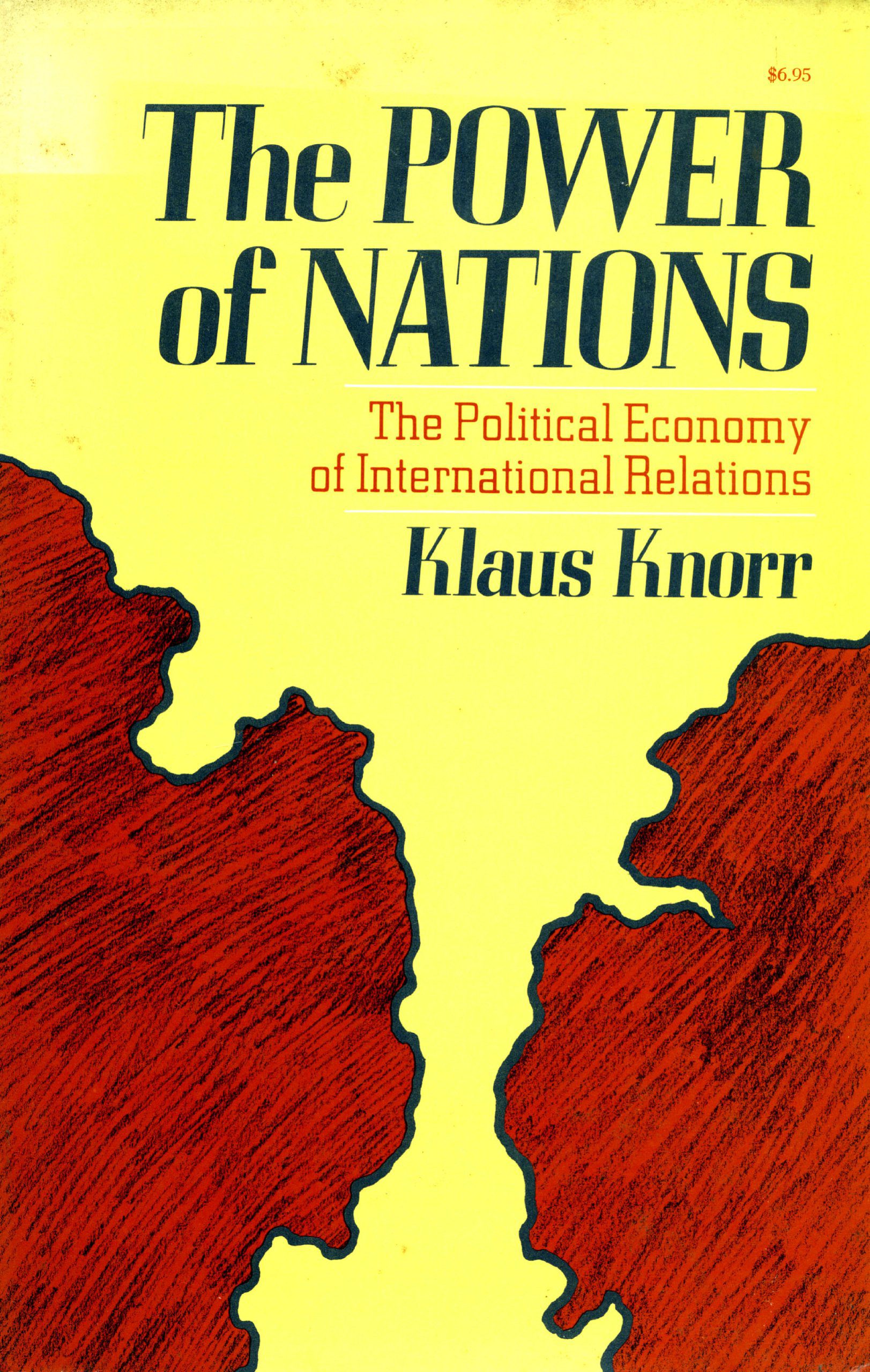
The Power of Nations: The Political Economy of International Relations
The Power of Nations: The Political Economy of International Relations" discusses how countries use their economic resources and political strengths to navigate international relationships effectively.

The geopolitics of access to oil resources: The case of Uganda
Ten years ago, Uganda joined other sub-Saharan African Countries with new discoveries of oil; and just as the case always is, this news comes with high prospects for development and economic transformation. These ambitious projections are always based on the success stories of oil money in other countries without prejudice to the fear of the infamous oil curse that results from poor exploitation of oil revenues. With these aspirations at hand, Uganda has clearly stated in its national polices and development plans the fact that the country's development in the next 30 years shall be largely de...

An assessment of economic and commercial diplomacy in micro-states: A case study of Namibia
Economic diplomacy can become an important tool for foreign policy of the government to promote economic interest of Namibia in relation to trade promotion, attracting investment through channels of diplomacy.
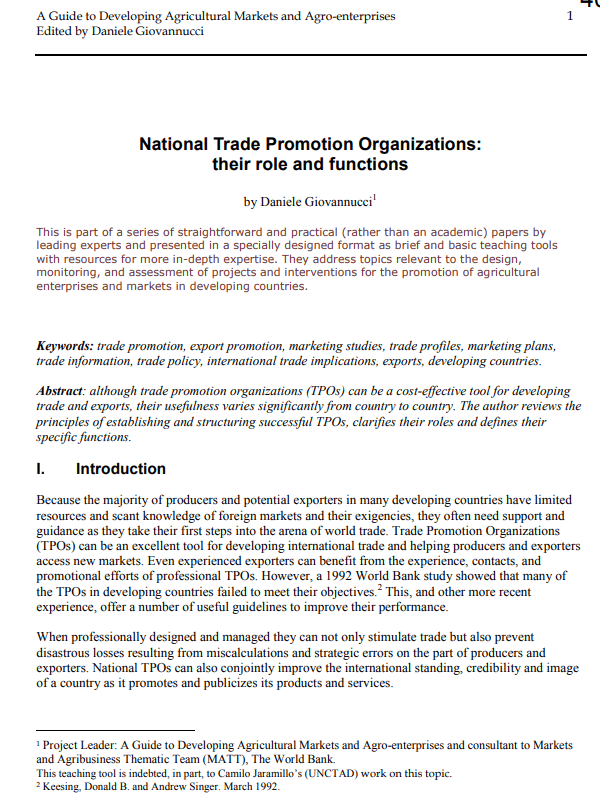
National Trade Promotion Organizations: Their role and functions
Although trade promotion organizations (TPOs) can be a cost-effective tool for developing trade and exports, their usefulness varies significantly from country to country. The author reviews the principles of establishing and structuring successful TPOs, clarifies their roles and defines their specific functions.
The Scottish Diaspora and Diaspora Strategy: Insights and Lessons from Ireland
The text discusses the Scottish Diaspora and Diaspora Strategy, drawing insights and lessons from Ireland.
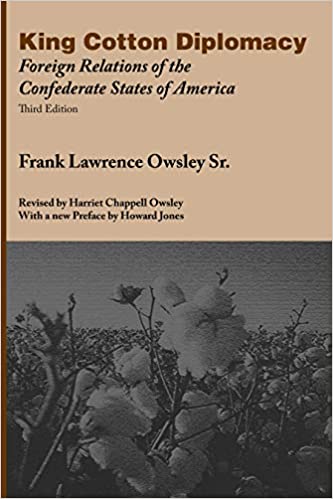
King Cotton Diplomacy: Foreign Relations of the Confederate States of America
The text discusses the foreign relations strategy of the Confederate States of America known as King Cotton Diplomacy, which aimed to leverage the economic power of cotton to gain support from European nations during the Civil War.

Economic Partnership Agreement and it’s Effect on Lesotho’s Economy
There is a dire situation of poverty in Lesotho. This is attributable to several factors such as: poor climatic conditions, HIV and AIDS pandemic and poor Government policies.
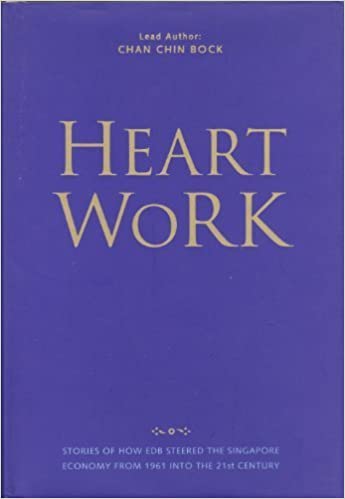
Heart Work: Stories of How EDB Steered the Singapore Economy from 1961 to the 21st Century
The message provides a detailed account of how the Economic Development Board (EDB) played a crucial role in steering the Singapore economy from 1961 to the 21st century.

Australian aid: Promoting prosperity, reducing poverty, enhancing stability
The text is about Australian aid focusing on promoting prosperity, reducing poverty, and enhancing stability.
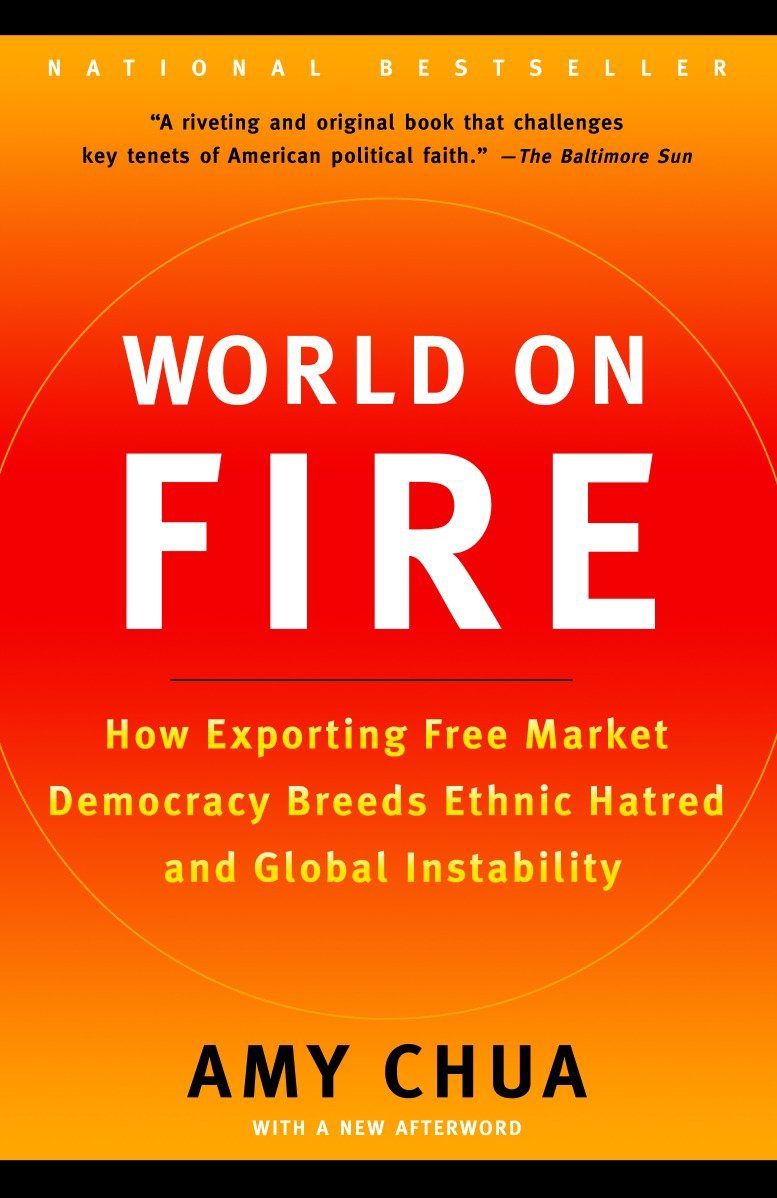
World on Fire: How Exporting Free-Market Democracy Breeds Ethnic Hatred and Global Instability
Markets only function optimally when there is perfect information. Joseph Stiglitz received the Nobel Prize in economics for proving that when there are asymmetries of information markets fail. Information economics, with its better analyses of labour, capital, and product markets, enables the construction of macroeconomic models that provide deeper insights into unemployment, recessions and depressions, and other problems that have marked capitalism since its beginnings.
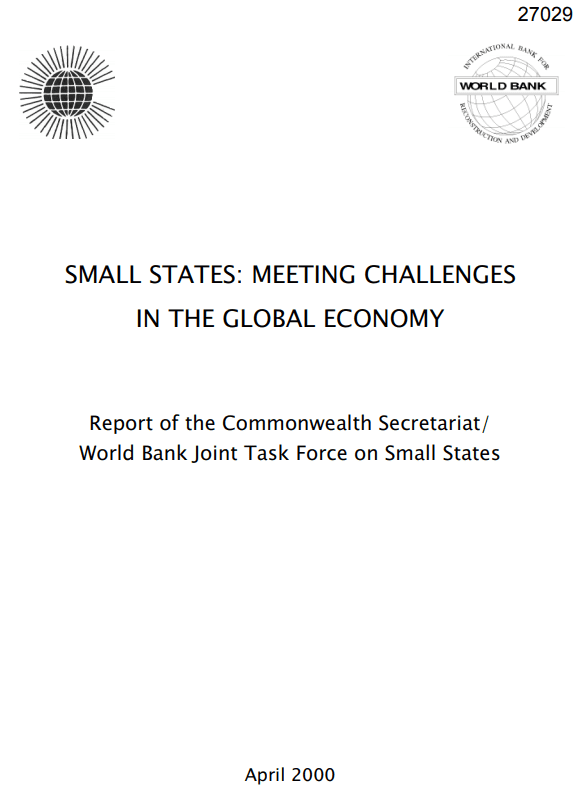
Small States: Meeting Challenges in the Global Economy
The article discusses how small states face unique challenges in the global economy and how they can adapt to overcome these obstacles. It highlights the importance of innovation, strategic partnerships, and leveraging their size to their advantage in order to thrive in the competitive global marketplace. Small states can utilize their flexibility and nimbleness to carve out a niche and find success in the face of larger competitors by focusing on areas where they have a comparative advantage. By embracing innovation and collaboration, small states can position themselves as key players in the...

Economic Diplomacy: The Level of Development and Trade
The text discusses the correlation between a country's level of development and its participation in international trade through economic diplomacy.

The Paris Declaration on Aid Effectiveness and the Accra Agenda for Action
The Paris Declaration and Accra Agenda highlight key principles and actions for improving aid effectiveness in developing countries, emphasizing ownership, alignment, harmonization, managing for results, and mutual accountability among donors and recipients. They aim to enhance the impact of aid by promoting transparency, participation, and partnership in the development process.

Island entrepreneurs: Insights from exceptionally successful knowledge-driven SMEs from 5 European island territories
The message provides insights on successful knowledge-driven SMEs from 5 European island territories.
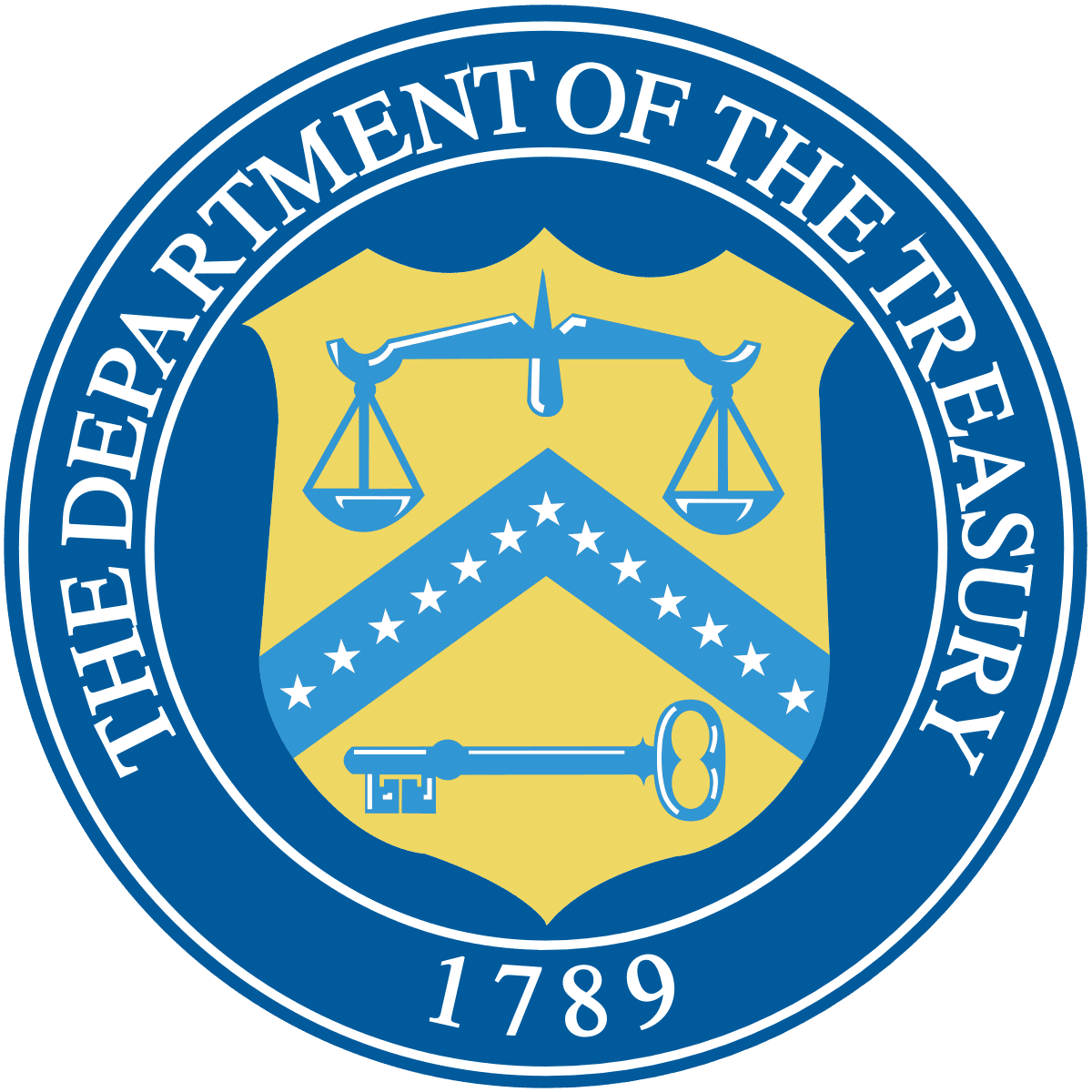
Effectiveness of U.S. Economic Sanctions with Respect to Sudan
The U.S. economic sanctions on Sudan have had limited success in achieving their intended goals due to various factors. The sanctions have impacted the Sudanese economy and government, but they have also inadvertently harmed civilians and hindered humanitarian efforts in the region. Additionally, the sanctions have not been successful in promoting political change or addressing human rights violations in Sudan. The effectiveness of these sanctions remains a topic of debate among policymakers and analysts.
The Globe: Diaspora Marketing
The Globe: Diaspora Marketing discusses the importance of marketing to diaspora communities, highlighting their economic potential and cultural influence. It emphasizes the need for tailored marketing strategies to effectively reach and engage with these diverse groups scattered around the world. The article underlines the benefits of tapping into diaspora markets, such as increased brand loyalty, word-of-mouth marketing, and unique insights for product development. It concludes by emphasizing the significance of recognizing and embracing the diaspora's multiculturalism to create successful ma...
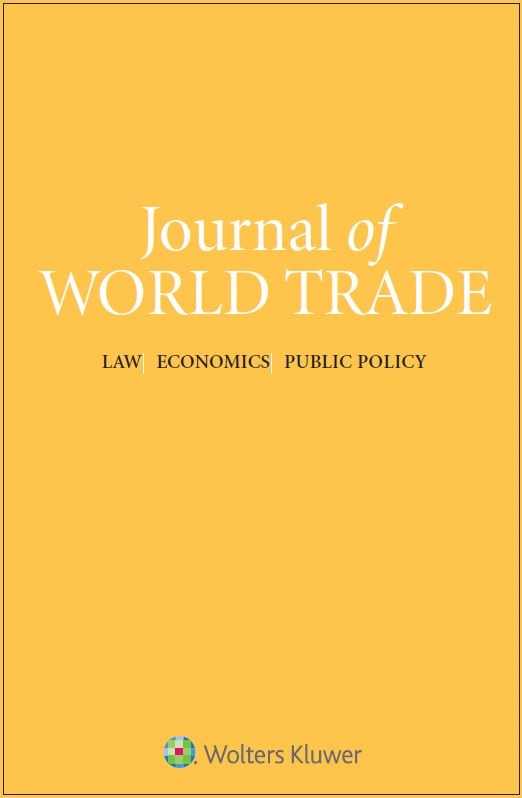
Mainstreaming Development in the WTO
The text discusses the importance of incorporating development goals into the World Trade Organization's (WTO) agenda to ensure more inclusive and sustainable global trade policies. It emphasizes the need for a balance between trade liberalization and development objectives to address the challenges faced by developing countries in the global trading system. It calls for mainstreaming development in the WTO's decision-making processes to promote fair and equitable trade practices that benefit all member countries.
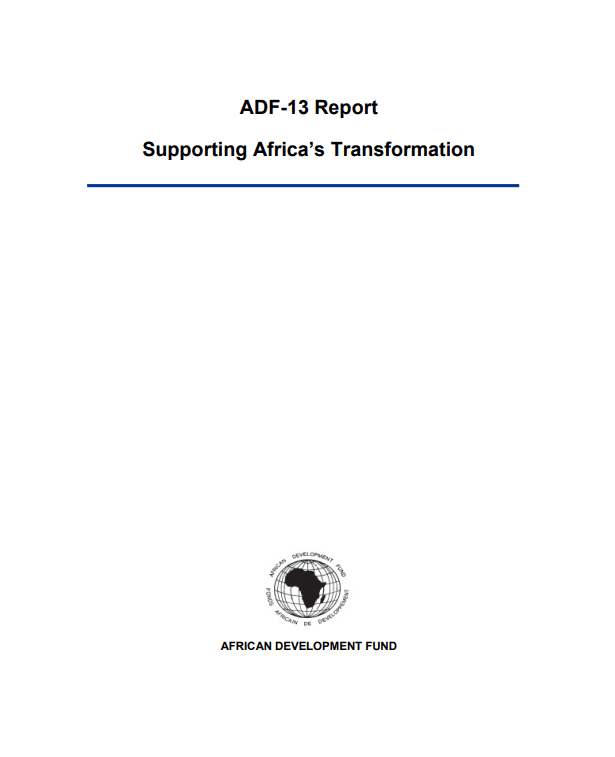
ADF-13 Report: Supporting Africa’s Transformation
The message summarizes the content of the ADF-13 report, which focuses on supporting Africa's transformation.
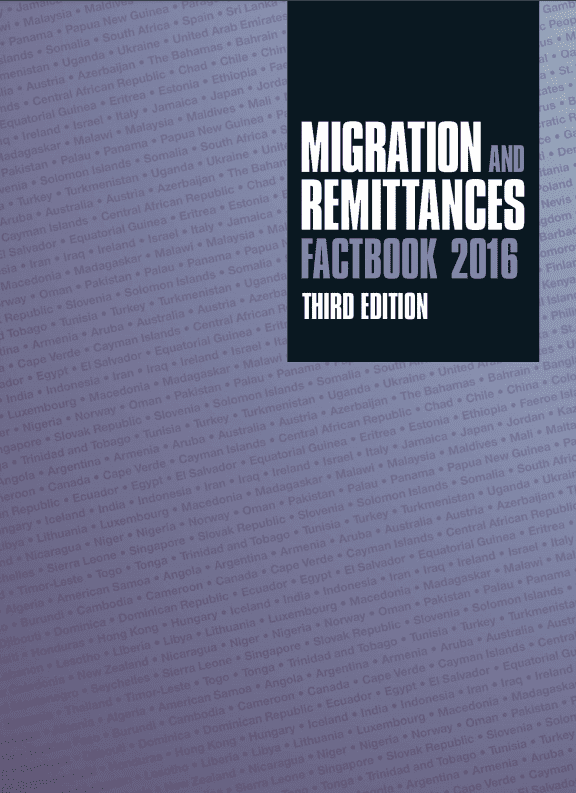
Migration and Remittances Factbook 2016
The Migration and Remittances Factbook 2016 provides comprehensive data on global migration patterns and trends, as well as the impact of remittances on economies worldwide. It covers topics such as migration flows, remittance trends, and policy issues related to migration. The factbook serves as a valuable resource for policymakers, researchers, and anyone interested in understanding the dynamics of migration and remittances on a global scale.
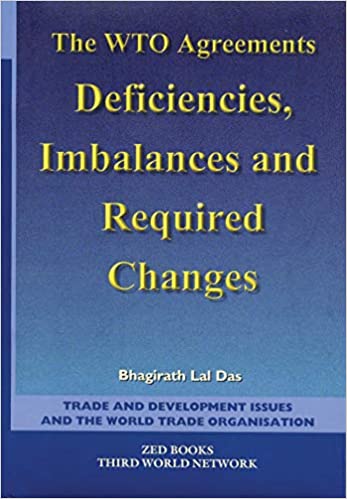
The WTO Agreements: Deficiencies, Imbalances and Required Changes
The text discusses the deficiencies, imbalances, and necessary changes needed within the WTO Agreements.
The Vulnerability of the Small Island Developing States of the Caribbean
The Small Island Developing States of the Caribbean are highly vulnerable to external economic and environmental shocks due to their small size and limited resources, which threaten their sustainability and development.

A Future for Small States: Overcoming Vulnerability
The message provides strategies for small states to overcome vulnerability and thrive in the future.

The New Public Diplomacy: Soft Power in International Relations
"The New Public Diplomacy: Soft Power in International Relations" is a thought-provoking and insightful book that delves into the realm of public diplomacy and its significance in the context of modern international relations. Authored by Jan Melissen, a renowned scholar in the field, this book offers a comprehensive analysis of the evolving nature of diplomacy and the growing importance of soft power.
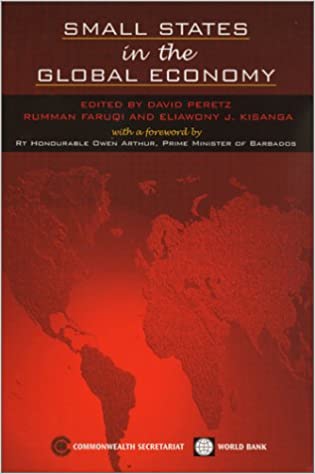
Small States in the Global Economy
The book, born out of the Commonwealth Secretariat/World Bank Joint Task Force on Small States, presents recommendations aimed at addressing the vulnerability of small states, advocating for broader recognition of their challenges.

Cultures of Corruption: Evidence from Diplomatic Parking Tickets
Corruption is believed to be a major factor impeding economic development, but the importance of legal enforcement versus cultural norms in controlling corruption is poorly understood.

Economic Diplomacy: India’s experience
Kishan Rana is a widely published former Indian ambassador and Bipul Chatterjee, his co-editor, is the deputy executive director of the Indian NGO, and CUTS International is the the publisher of this book. Both editors are also trained economists. Their volume consists of 25 chapters, all except three written by serving or former members of the Indian Foreign Service. The chapters are divided into five parts, the titles of three of which clearly indicate the broad meaning given by the editors to the term economic diplomacy: ‘Export promotion’; ‘Investment and economic aid’; and ‘Mana...

DAC High Level Meeting: Final Communiqué
On 15-16 December 2014 the OECD Development Assistance Committee (DAC) came to an important and historic consensus on how to modernise its statistical framework for measuring development finance to developing countries. It paved the way for the ambitious Sustainable Development Goals (SDGs).
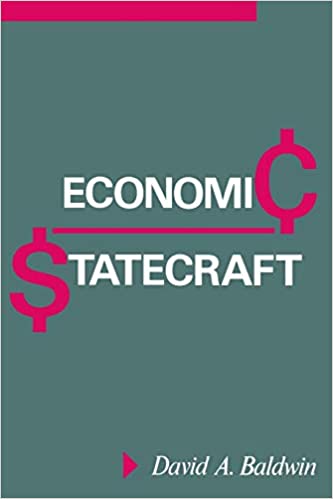
Economic Statecraft
The text is about economic statecraft.
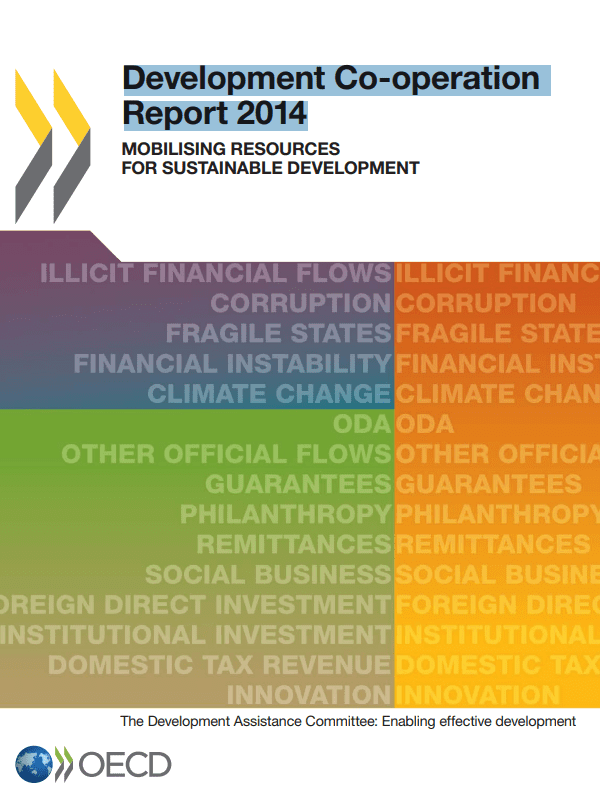
Development Co-operation Report 2014: Mobilising Resources for Sustainable Development
The Development Co-operation Report 2014 emphasizes the importance of mobilizing resources for sustainable development. It highlights the need for effective partnerships, innovative financing mechanisms, and increased transparency to achieve development goals. The report also stresses the importance of policy coherence, human rights-based approaches, and the engagement of a wide range of stakeholders in development efforts.
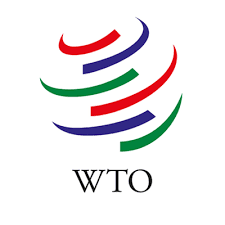
Work Programme on Electronic Commerce
The text outlines the World Trade Organization's work program on electronic commerce, focusing on discussions and negotiations aimed at establishing rules and frameworks to govern digital trade in the global economy.
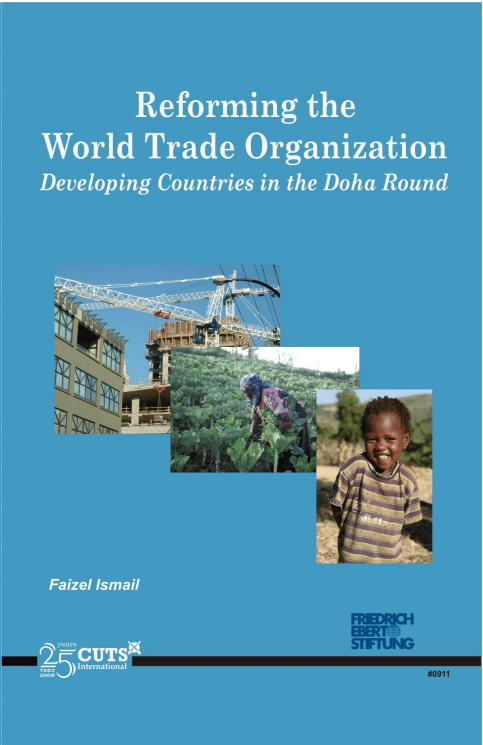
Reforming the World Trade Organisation: Developing Countries in the Doha Round
In tne text, the focus is on the necessity of reforming the World Trade Organisation to better support developing countries participating in the Doha Round negotiations. Key points likely include addressing imbalances in trade rules, improving access to markets, and ensuring fair treatment for developing nations in the global trade arena.
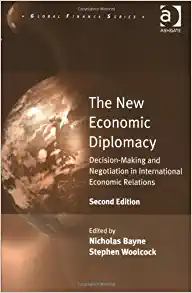
The New Economic Diplomacy
The New Economic Diplomacy focuses on how the intersection of economics and foreign policy is shaping international relations in the modern world. It discusses how economic tools are increasingly being used to achieve political objectives and how countries are utilizing economic diplomacy to advance their interests on the global stage. This shift towards a more economically driven approach to diplomacy reflects the changing dynamics of international relations and highlights the growing importance of economic considerations in foreign policy decision-making.
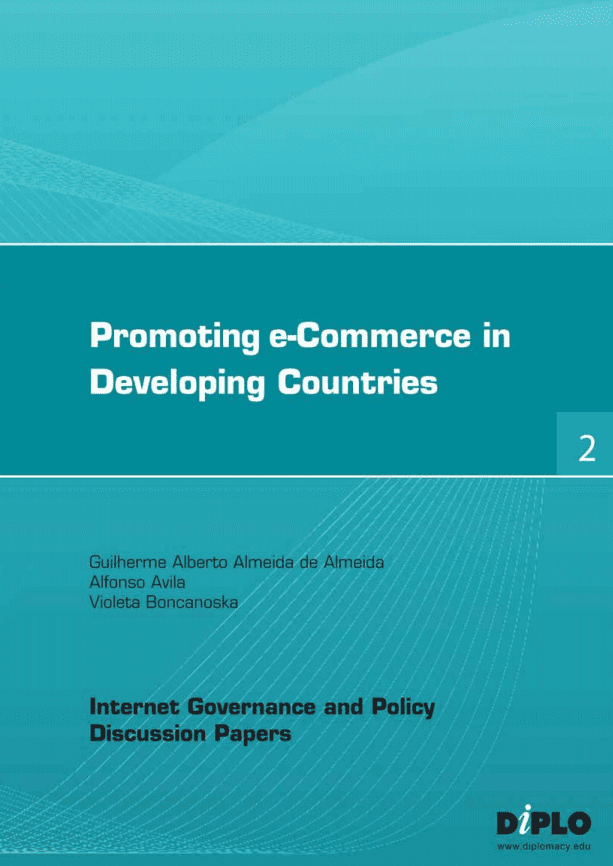
Promoting e-Commerce in developing countries
This study examines the advantages and possibilities for the use of digital signatures to carry out electronic transactions. It focuses on developing and transition countries that have not fully implemented the use of digital signatures in their economic, commercial and productive processes. An important aim of this research is to create awareness on the likely effects for enforcing the use of digital signatures to carry out e-commerce transactions on the economies of developing and transition countries. The study also proposes key issues to be considered for policy-makers in countries in orde...

Palestinian Economic Diplomacy: Planning for Statehood
This study intends to give the Palestinian policymakers a tool to support the emergence of an economically-viable Palestinian state through equipping the Palestinian Authority PA with legal, economic, and technical policy advice to prepare the regulation for the development of a trade policy for an independent state; the establishment of a WTO compatible sovereign framework for trade; and permanent economic status negotiation with Israel. The two-state solution is the least common denominator for a just and peaceful solution for the conflict, justice means; economic viability and socio-economi...

The Role of the Beijing Olympics in China’s Public Diplomacy and its Impact on Politics, Economics and Environment
The 2008 Beijing Olympics were ardently sought, lavishly staged and hugely successful, despite intense scrutiny, speculation and setbacks. Amplified by modern media, most controversies revolved around China's political repression, epitomised by Tibet brutality. Resultant protests threatened boycott and terror, putting internal cohesion, national image and Olympic dream at stake.

Message on Switzerland’s International Cooperation in 2013-2016
The text discusses Switzerland's international cooperation activities from 2013 to 2016.
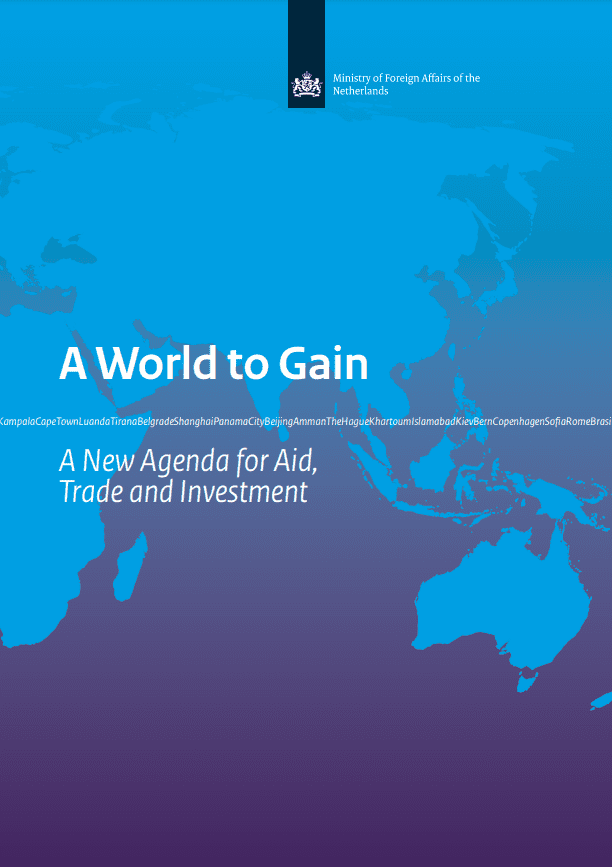
A World to Gain: A New Agenda for Aid, Trade and Investment
A World to Gain: A New Agenda for Aid, Trade and Investment" outlines a comprehensive approach to global development through aid, trade, and investment. It suggests strategies to address economic disparities and foster sustainable growth worldwide. The book advocates for collaboration between countries and institutions to tackle challenges and unlock opportunities for progress on a global scale.

Commercial diplomacy and international business
The importance of commercial diplomacy in international business cannot be overstated. By utilizing diplomatic tactics and strategies, businesses can navigate foreign markets effectively and establish strong relationships with partners and stakeholders. This approach is essential in overcoming trade barriers and fostering a conducive environment for global business growth and success. Emphasizing the role of diplomatic efforts in business dealings can lead to mutually beneficial outcomes and contribute to sustainable economic development on a global scale.
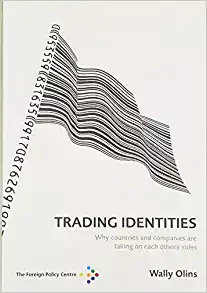
Trading Identities: Why Countries and Companies are Taking on Each Others’ Roles
The text discusses how countries and companies are increasingly adopting each other's roles in global trade.

Is a special treatment of small island developing States possible?
The text outlines the challenges faced by Least Developed Countries (LDCs) in achieving sustainable development and proposes strategies to address these issues through international cooperation and policy interventions.
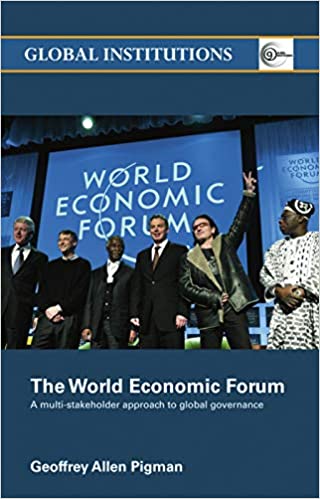
World Economic Forum: A Multi-stakeholder Approach to Global Governance
The World Economic Forum advocates for a multi-stakeholder approach to global governance, emphasizing the importance of collaboration between various sectors to address global challenges effectively. This inclusive method allows for diverse perspectives and expertise to be considered in decision-making processes, fostering innovative solutions and sustainable outcomes for a rapidly changing world.

The African Diaspora Program: Mobilizing the African Diaspora for Development
The African Diaspora Program aims to engage and unite African diaspora communities worldwide to contribute to development efforts in Africa.

Small developing economies and the multilateral trading system: A Caribbean perspective
Small developing economies are often constrained in participating in the negotiation and regulation of multilateral trading rules due to severe cost and resource limitations. This article argues that, despite the costs and difficulties, small states must remain engaged in the multilateral trading system in order to ensure that their specialised commercial interests are recognised and to protect their rights. Umbrella entities like the Caribbean Regional Negotiating Machinery (CRNM) provide a means of maximising the influence of small states in an international forum such as the World Tra...
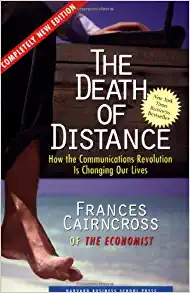
The Death of Distance: How the Communications Revolution Is Changing Our Lives
The Death of Distance: How the Communications Revolution Is Changing Our Lives" discusses how advancements in communication technology are diminishing the significance of physical distance in our lives. It explores how these changes are transforming the way we connect with others, conduct business, and experience the world around us. This book delves into the impact of these developments on various aspects of society and highlights the increasing interconnectedness of the global community as a result of these innovations.
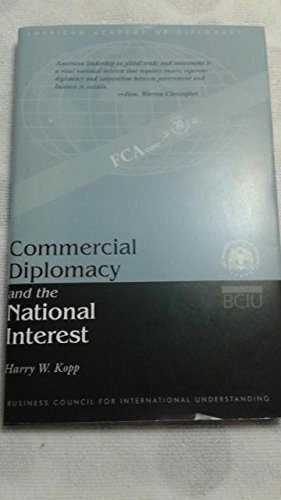
Commercial Diplomacy and the National Interest
This short and lively book lays out the why and the how of promoting US business abroad. America's place in the world depends more than is usually acknowledged on the vigor and global reach of American business. The United States is the world's leading exporter, the world's leading importer, and the world's primary source and destination of funds for foreign investment. Our position as the best place in the world to do business-the most reliable in which to buy, the most lucrative in which to sell, and the safest and surest in which to invest or to raise capital-is a cause, not an effect, of A...

Finance, Trade and Politics in British Foreign Policy, 1815-1914
The text explores the interplay of finance, trade, and politics in British foreign policy from 1815 to 1914. It discusses how economic factors influenced decision-making and shaped diplomatic relations during this period.
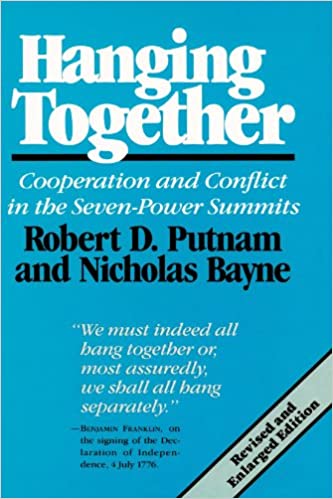
Hanging Together: Cooperation and conflict in the seven power summits
The text discusses the dynamics of cooperation and conflict within seven power summits.
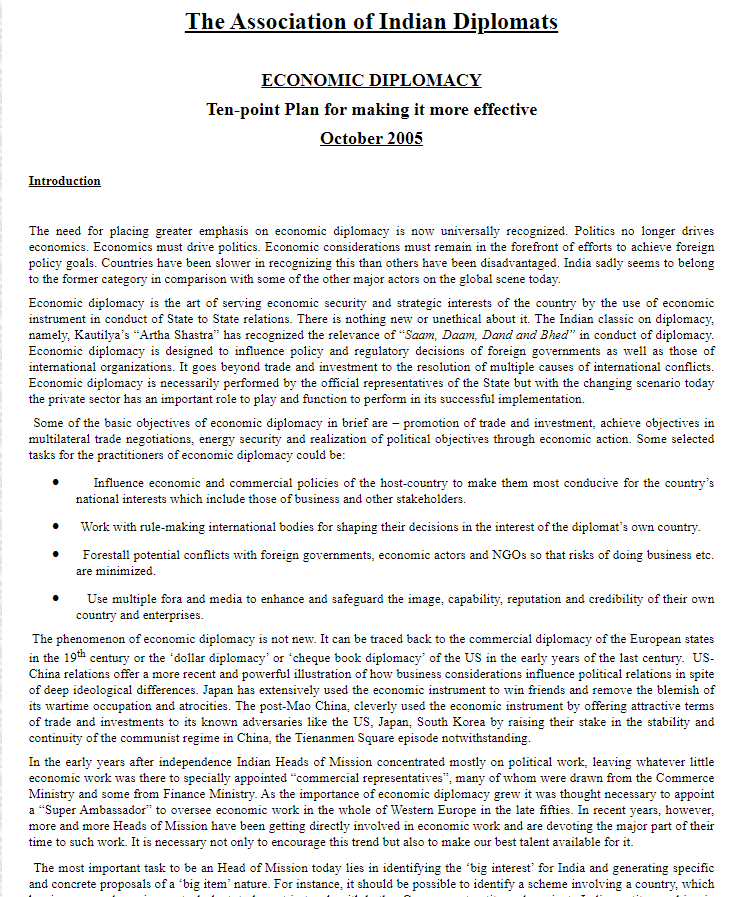
Economic Diplomacy: Ten-point Plan for making it more effective
The message provides a ten-point plan for making economic diplomacy more effective.
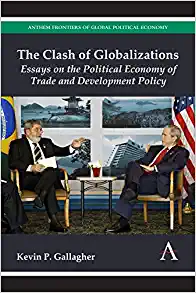
The Clash of Globalizations: Essays on the Political Economy of Trade and Development Policy
The Clash of Globalizations: Essays on the Political Economy of Trade and Development Policy explores the tensions between different approaches to globalization, examining how they impact trade and development policy.
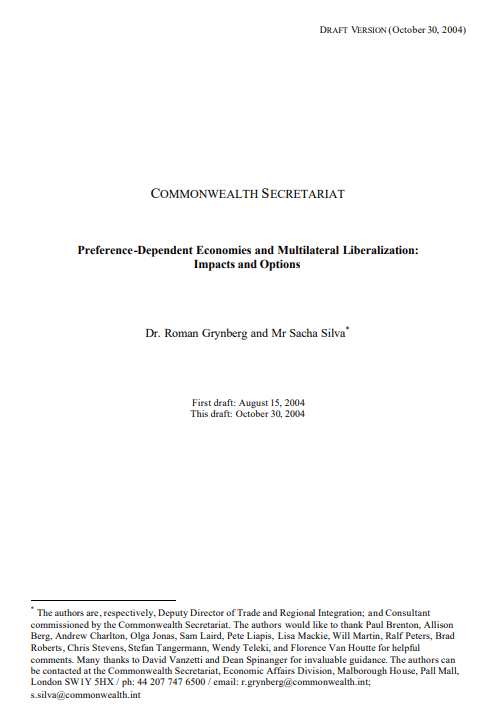
Preference-Dependent Economies and Multilateral Liberalization: Impacts and Options
The text examines the impacts and options surrounding multilateral liberalization within preference-dependent economies, shedding light on the complexities and considerations involved in navigating trade policies in such contexts.
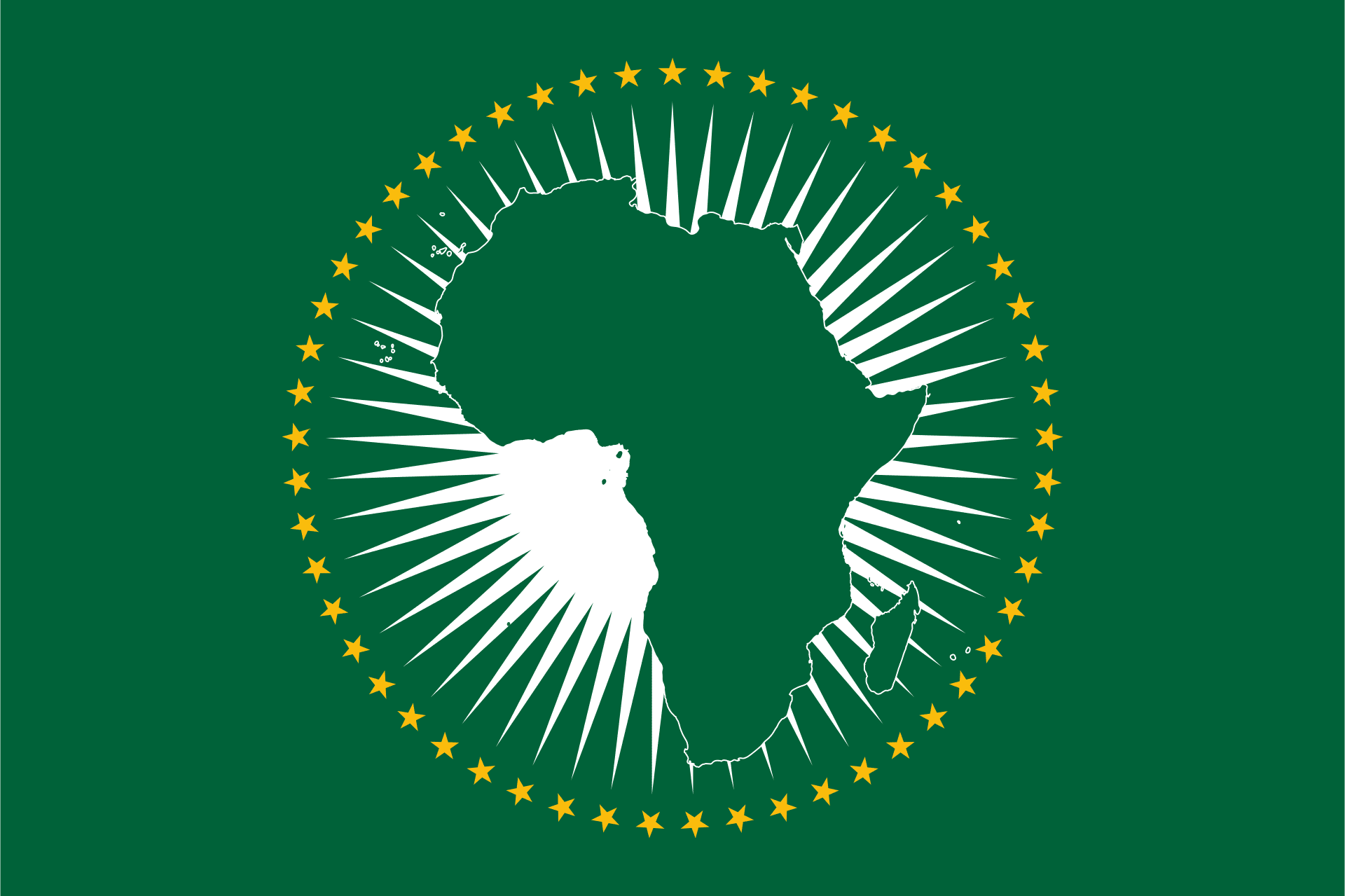
Declaration of the Global African Diaspora Summit
The text describes the Global African Diaspora Summit as a significant platform for discussing issues affecting people of African descent worldwide, fostering unity, and promoting economic development and social inclusion within the diaspora.

Economic coercion as an instrument of foreign policy: US economic measures against Cuba and the Dominican Republic
The text discusses how the United States has used economic coercion as a foreign policy tool against Cuba and the Dominican Republic.
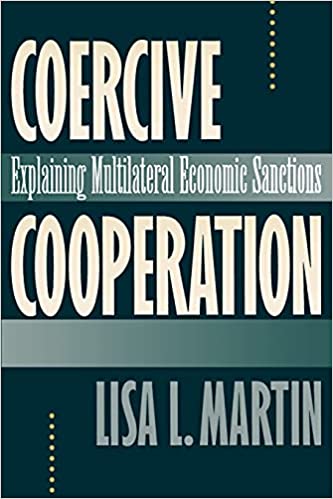
Coercive Cooperation: Explaining Multilateral Economic Sanctions
The text discusses how multilateral economic sanctions can be effective in coercing cooperation from targeted states by increasing the costs of noncompliance.

Enhancing Economic Diplomacy (For Trade, Investment and Employment)
The message focuses on the importance of enhancing economic diplomacy for trade, investment, and employment.
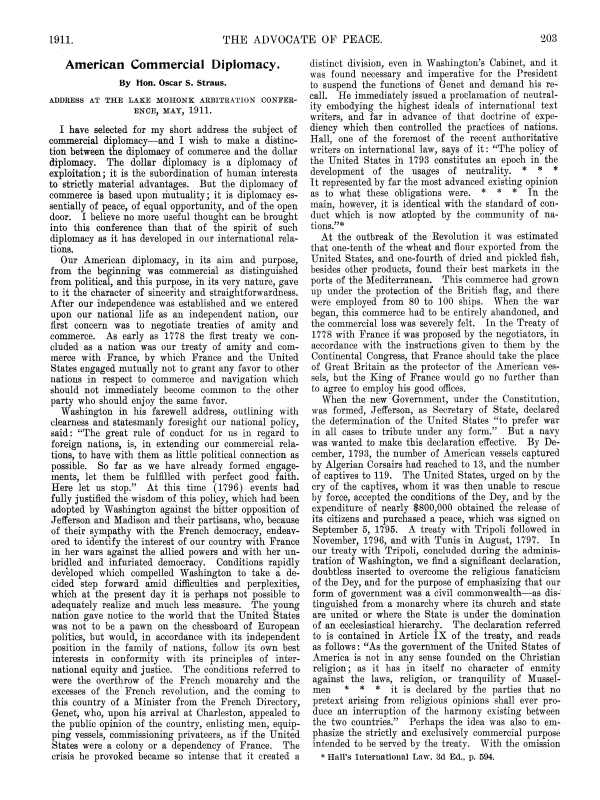
Commercial Diplomacy
The concept of commercial diplomacy involves leveraging international trade and economic relations to achieve diplomatic goals and strengthen international partnerships. It focuses on utilizing economic tools and strategies to advance political objectives and foster cooperation between nations. By integrating economic interests into diplomatic efforts, commercial diplomacy aims to promote mutual benefits and resolve conflicts through trade and commerce. This approach recognizes the interconnectedness of economic and diplomatic activities and seeks to harness the power of commerce to build brid...

Uncertain Times
Not long ago, Latin America was a success story of economic growth. While advanced economies suffered a severe recession during the 2008–09 financial crisis in the United States and western Europe, followed by a weak recovery, emerging market economies were seen as the promise for renewed world economic growth. Latin America was viewed as part of that promise.

Our Global Neighbourhood
The text discusses the importance of global cooperation and the need for collaborative efforts to address various global challenges and create a sustainable and peaceful world. It emphasizes the interconnectedness of nations and the shared responsibility to work together for the betterment of all.
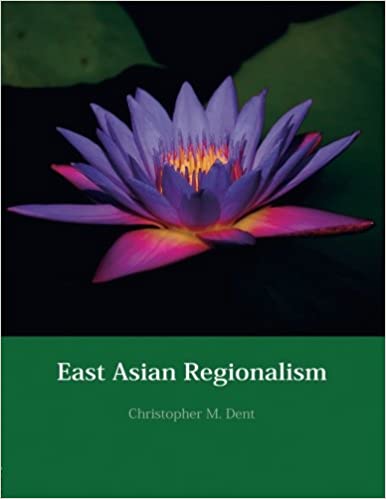
East Asian Regionalism
The text examines the dynamics and evolution of East Asian regionalism, analysing the various economic, political, and social factors influencing regional integration efforts in the East Asian context.
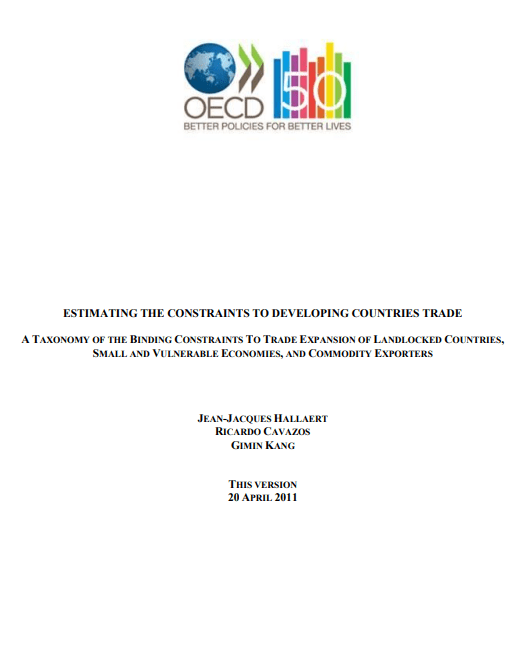
Estimating the Constraints to Developing Countries Trade
The text discusses the challenges that developing countries face in expanding their trade activities due to various constraints such as limited infrastructure, lack of technology, and trade regulations.
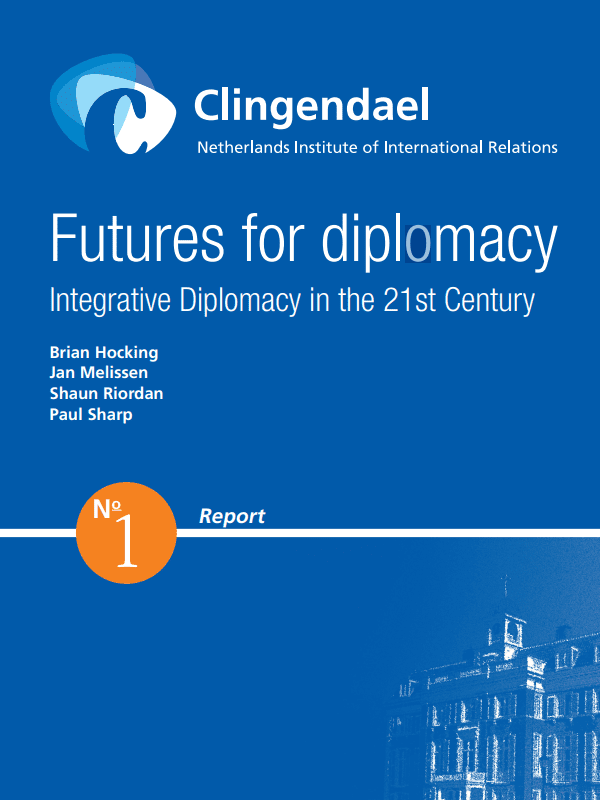
Futures for diplomacy: Integrative Diplomacy in the 21st Century
The text discusses Integrative Diplomacy in the 21st century, emphasizing the importance of adapting traditional diplomacy to current global challenges and opportunities. Diplomacy is viewed as a tool for addressing complex issues through collaboration and integration, fostering mutual understanding and sustainable solutions. The changing dynamics of international relations require a more inclusive and interconnected approach, focusing on partnerships and cooperation in order to navigate the complexities of the contemporary world. Diplomacy is seen as essential in shaping the future of global ...
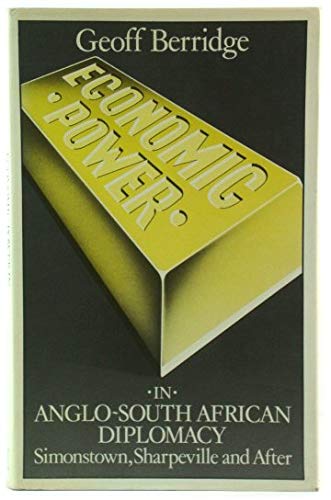
Economic Power in Anglo-South African Diplomacy
The text discusses how economic power influences Anglo-South African diplomatic relations.
The latest from Diplo and GIP
Tailor your subscription to your interests, from updates on the dynamic world of digital diplomacy to the latest trends in AI.
Subscribe to more Diplo and Geneva Internet Platform newsletters!
Diplo: Effective and inclusive diplomacy
Diplo is a non-profit foundation established by the governments of Malta and Switzerland. Diplo works to increase the role of small and developing states, and to improve global governance and international policy development.


